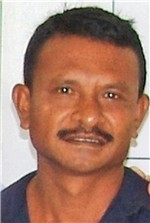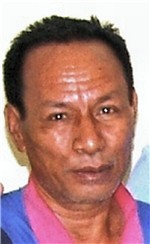 As the International Herald Tribune puts it: “Indonesia Executes 3, Despite EU Appeal”. Once again the EU’s influence is displayed for all to see. It would not matter so much if we were not told at great length by the propagandists in such organizations as the Centre for European Reform, that one of the joys of the EU was its ability to have a quiet influence on all sorts of nasty people. Not, you understand, like those nasty, brutish Americans.
As the International Herald Tribune puts it: “Indonesia Executes 3, Despite EU Appeal”. Once again the EU’s influence is displayed for all to see. It would not matter so much if we were not told at great length by the propagandists in such organizations as the Centre for European Reform, that one of the joys of the EU was its ability to have a quiet influence on all sorts of nasty people. Not, you understand, like those nasty, brutish Americans."The European Union, along with many other like-minded countries, opposes the use of the death penalty in all circumstances," the Finnish ambassador, Markko Niinioga, representing the presidency of the EU, said in a letter that was delivered Wednesday to the Indonesian president, Susilo Bambang Yudhoyono. "The EU finds this punishment cruel and inhuman."The NYT article carefully does not say but there have been problems with the trial and with the sudden decision to execute. The case grew out of the internecine violence that swept Sulawesi Province from 1998 to 2002, killing more than 1,000 people of both religions. A handful of Muslims have been convicted and given considerably lesser sentences.
The letter was read to a journalist by a European diplomat, who did so on the condition of anonymity because the letter has not been released publicly. An aide to Yudhoyono confirmed that it had been received.

According to a more detailed account on WorldNet Daily,
The three men claimed their convictions resulted from irregularities during their trial. They contended, for example, the judge in the case neglected to consider the testimony of 13 different witnesses – including the defendants themselves – that would have exonerated them.The execution was stayed last month but, for some reason, was speeded up:
A number of other witnesses – including Irwanto Hasan, who at the time was a member of the Poso Police Intelligence Division – said the men were part of a humanitarian team when they were arrested.
The execution was stayed last month by the attorney general for Central Sulawesi, Mohammad Yahya Sibe, but the official suddenly was replaced, and the order was given to proceed. The chief of police also suddenly was replaced and sent to another department.Gateway Pundit, who followed the case through, has more on the subject, reporting that one outcome of the executions has been renewed riots on the island of Flores. Now, one could argue that fear of riots should not deter judicial punishment from being imposed but that would assume that the trial had been free and fair and the sentences appropriate or that there is any kind of equality between what is meted out to Christians and to Muslims.
Normally, said ICC, the appeal for the three men should last months or even a year.
The U.S. group points out Tibo, Riwu, and Da Silva were the only men charged in the Poso conflict.
 As the same blog points out:
As the same blog points out: Meanwhile, a militant cleric alleged to be a top leader in an al-Qaida-linked terror group was released from prison in June.One assumes that the rather lopsided and questionable justice system is overseen by the President, Susilo Bambang Yudhoyono, the one who is refusing to reply to the various official pleas and letters.
Abu Bakar Bashir, 68, had served 26 months for conspiracy in the 2002 Bali bombings, which killed 202 people in the world's most populous Muslim nation.
President Yudhoyono is, apparently, considered to be a likely contender for the next Nobel Peace Prize. A few more rapidly engineered executions and the man will be a shoo-in, unless somebody nominates President Ahmadinejad.
